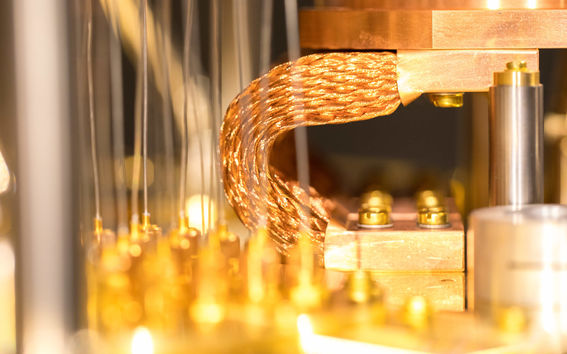The Academy of Finland decided on roadmap for research infrastructures

The Academy of Finland has selected 29 research infrastructures to be included in the national roadmap for research infrastructures covering the years 2021–2024. The roadmap for national research infrastructures in Finland is a list of strategically significant research infrastructure services needed over the next 10–15 years in the Finnish research, development and innovation system.
Aalto University coordinates three major research infrastructures: Bioeconomy for the needs of bio- and circular economy, RawMatters operating in the field of natural and synthetic inorganic materials, as well as OtaNano for micro- and nanosciences and quantum technologies. In addition, the university is involved in seven other research infrastructures.
The Finnish Research Infrastructures (FIRI) Committee has outlined that most of the funding in FIRI calls to be opened based on the roadmap will be earmarked for research infrastructures included in the roadmap. The next FIRI funding call opens in spring 2021.
Aalto University’s research infrastructures on the national roadmap 2021–2024
Bioeconomy. The special expertise of Aalto University's and VTT's research environment is bio- and circular economy, where forest raw materials and biobased waste and side streams are processed into high-value products.
Euro-BioImaging comprises some of Europe's best imaging technologies for the needs of biological and medical sciences in two service centers: Finnish Advanced Light Microscopy Node and Finnish Biomedical Imaging Node.
Earth-space ecosystem (E2S). The observational megasites form globally unique infrastructure covering measurements from distant and near-Earth space to atmosphere and ground. Aalto University's Metsähovi, Finland's only astronomical radio observatory, is part of the entity.
Fin-CLARIAH serves a wide range of research needs in the fields of social sciences and humanities offering a variety of linguistic materials (Fin-CLARIN) as well as extensive humanities research materials (Fin-CLARIAH). Read more
In the European Plate Observing System (Fin-EPOS) research consortium, universities and research institutes maintain observatories and laboratories for Solid Earth Sciences and provide data to international data centers for geoscientific research needs.
The Finnish Computing Competence Infrastructure (FCCI) brings together the computational and data storage resources needed for data-intensive research, artificial intelligence and high-performance computing into a single national entity for the use of both science and the arts.
Finnish Quantum Computing Infrastructure (FIQCI) is a new research infrastructure shared by Aalto University, VTT and CSC, which provides quantum computing services, such as computing time and training, to support the planning of the utilization of computing technology in the future quantum computers.
FUWIRI enables the research, development and testing of hardware solutions, algorithms, software and applications related to the wireless networks of the future. Aalto University offers an extensive measurement environment for the research and design of electronic devices.
OtaNano offers a wide variety of facilities for the needs of micro- and nanoscience and technology, and quantum engineering. Expertise in nanotechnology, quantum computing, and low-temperature physics also supports internationally competitive high-tech businesses.
RawMatters/RAMI supports the natural and new inorganic material research needed for the circular economy. Special focus areas are closed material loops, sustainable energy research, further processing of primary mining products, and the processing and sustainable use of secondary raw materials.
Read more
Funding decisions by the Academy of Finland 11 December 2020 (> aka.fi)Research infrastructures at Aalto University
Photo Mikko Raskinen, Aalto-yliopisto
Read more news

Significant donation to boost pavement engineering research and education
Companies and associations in the field have donated €400,000 to the School of Engineering.
‘Mesoscale’ swimmers could pave way for drug delivery robots inside the body
Researchers have discovered how tiny organisms break the laws of physics to swim faster — such secrets of mesoscale physics and fluid dynamics can offer entirely new pathways for engineering and medicine.
Design strengthens industrial competitiveness – human-centered factory work at the core
Factory work is undergoing a transformation: new technologies and artificial intelligence are changing the content and roles of work. Aalto University’s Department of Design is studying this change from a human-centered perspective in the HiFive project.






